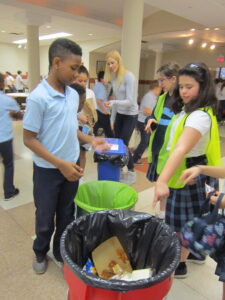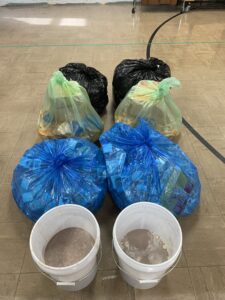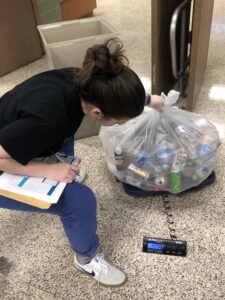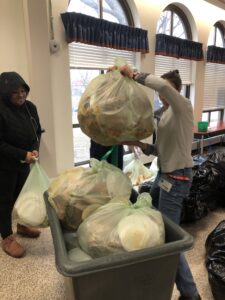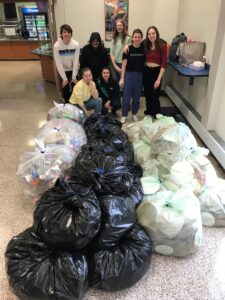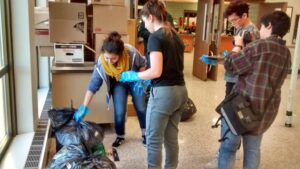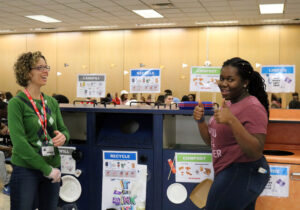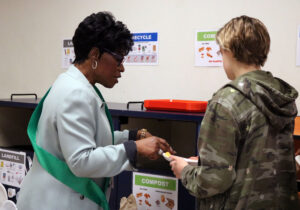SGA’s Zero Waste Schools Program began at Holmes Elementary School in Oak Park in 2008. The Oak Park and River Forest Zero Waste Program is now funded by PlanItGreen through the Oak Park-River Forest Community Foundation. SGA launched the Oak Park and River Forest Green Team Collaborative in 2012. The collaborative, which consists of parents, school/district staff, and administration, was formed to share best practices and ideas between schools to reduce waste, recycle, compost and teach students to be environmental leaders
Highlights
Collectively, Oak Park and River Forest schools divert an average of 85% of their lunchroom waste from landfills through recycling and commercial composting.
Oak Park and River Forest High School began kitchen composting in 2012. In 2016, they started participating in the Surplus Project, in which cafeteria staff repackages surplus prepared foods into individual meals that volunteers from the Oak Park River Forest Food Pantry deliver to Youth Outreach Services.
Beye Elementary School diverts 96% of its lunchroom waste from landfill– typically generating a mere 2 lbs of lunchroom trash per day for its 425 students.
All 10 District 97 schools are now diverting liquids, food scraps, organic materials, and recyclable items from the landfill.
The Zero Waste Schools Program has been launched at the following schools:
District 97
Beye Elementary School, launched in 2019
Brooks Middle School, launched in 2015
Hatch Elementary School, launched in 2016
Holmes Elementary School, launched in 2016
Irving Elementary School, launched in 2017
Julian Middle School, launched in 2013
Lincoln Elementary School, launched in 2019
Longfellow Elementary School, launched in 2019
Mann Elementary School, launched in 2017
Whittier Elementary School, launched in 2009
District 90
Lincoln Elementary School, launched in 2017
Roosevelt Middle School, launched in 2017
Willard Elementary School, launched in 2017
District 200
Oak Park and River Forest High School, launched in 2012
Private Schools
Alcuin Montessori School, launched in 2022
Ascension Elementary School, launched in 2016
St. Giles Elementary School, launched in 2015
The Children’s School, launched in 2018
Trinity High School, launched in 2016
